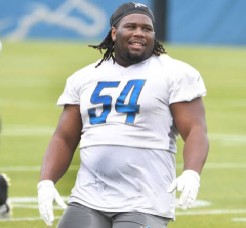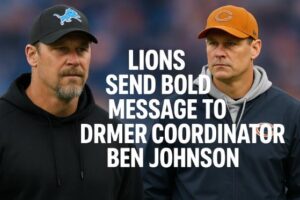
BYU Goes All-In on Basketball with Big Investments, Recruiting Top Talent
A.J. Dybantsa, the No. 1 recruit in the 2025 class, has committed to BYU, signaling the Cougars’ ambition to join college basketball’s elite programs.
PROVO, Utah — The Strap Tank Brewery in Provo has the charm of a picturesque ski lodge, where patrons can enjoy hearty bison burgers while admiring vintage aircraft and motorcycles against the backdrop of snow-capped Rocky Mountains.
In a quiet corner of the brewpub, Paul Liljenquist, a key BYU booster, took a sip of water and boldly declared that the school’s basketball program was about to make waves, after he and other benefactors pledged nearly eight figures to secure Dybantsa, the No. 1 recruit in the 2025 class, in an effort to reshape college basketball.
“You’re not going to outbid us,” said Liljenquist, CEO of Focus Services, a $500 million company in Utah.
Dybantsa’s decision to attend BYU, a private, predominantly white Mormon institution in Utah, stunned the basketball community. However, BYU’s wealthy backers, including entrepreneurs from the thriving “Silicon Slopes” tech hub, showed they were willing to offer the reported $8.5 million Dybantsa demanded.
“You couldn’t do this without the tech boom of the last two decades,” Liljenquist explained. “Without it, you’d only have doctors and lawyers, and they’re not writing million-dollar checks.”
As the flagship school of The Church of Jesus Christ of Latter-day Saints, BYU is striving to establish itself as a powerhouse in college basketball. Traditional powerhouse programs have long controlled the sport, but with the introduction of NIL rules, new opportunities are emerging for schools like BYU.
“I think BYU basketball can be one of those basketball powerhouses,” said Dallin Hall, a BYU guard. “We’re building something here. We want BYU to be recognized as one of the top basketball programs in the country.”
Is it possible for a recent mid-major to rise to the level of the sport’s elite? A strong, affluent group of supporters is determined to find out, starting with a critical hire: a new head coach.
After Kevin Young left the Phoenix Suns to take over as head coach last April, BYU’s wealthiest boosters gathered in a room where the combined net worth exceeded $10 billion, to hear from their new leader, whose reputation as an NBA coach had been bolstered by working with stars like Kevin Durant, Devin Booker, and Joel Embiid.
Young impressed the group with his vision for BYU basketball. His organized, passionate presentation made the boosters feel part of the team, not just wealthy donors. He assured them that his NBA experience and the financial backing of the program could transform BYU into a serious contender, even within the competitive Big 12.
Though BYU’s rise may seem improbable, Young’s career proves he’s adept at rapid growth. From coaching a pro team in Ireland in 2006 to becoming a highly regarded NBA assistant, Young’s career trajectory makes him a strong candidate for transforming BYU’s basketball program.
Young’s communication style is effective. His NBA experience allows him to connect with players and staff without imposing his authority. “[Young] is an unbelievable coach,” said Chris Paul of the Phoenix Suns. “He’s one of the most competitive guys in our locker room.”
In 2018, Young delivered a 42-second postgame speech to the Philadelphia 76ers, demonstrating his ability to motivate players with brevity. This trait remains evident at BYU, where Young speaks less but with purpose.
Young’s NBA background has brought attention to BYU. Professional scouts, who might have overlooked the school in the past, now make it a regular stop on their scouting tours. Just recently, 32 scouts attended a BYU game featuring two highly recruited players, Kanon Catchings and VJ Edgecombe.
However, Young’s focus isn’t solely on recruiting talent. He also embraces the financial realities of college basketball. The NIL era has made the sport more business-like, and some veteran coaches have left, citing frustration with the changing landscape. But Young, accustomed to the financial aspects of the NBA, feels this is an advantage.
“I think I’m at a major advantage because I have no points of reference prior to this,” said Young. “That’s helped me a lot with the support we have here. I think they quickly realized that we’re going to get things done.”
Months after Young secured BYU’s financial backing, Dybantsa showed off his impressive skills at the Peach Jam, drawing the attention of every Division I coach in attendance. Dybantsa is a highly skilled shooting guard with the physique of a power forward, a rare combination that had NBA scouts buzzing.
“Right now, he would be the No. 1 pick in the NBA draft,” one scout said of Dybantsa, who was only a high school junior at the time.
Dybantsa had options from top programs but chose BYU due in part to Young’s impressive background. “He coached my favorite player of all time, Kevin Durant,” Dybantsa said. “And Durant had high praise for him.”
Dybantsa values the NBA-level resources available at BYU, including staff and facilities tailored to developing NBA talent. He has also accepted the unique aspects of playing at BYU, such as the honor code that bans premarital sex, alcohol, coffee, and tea.
Dybantsa and his family were reassured by BYU’s coaching staff, including Young, who flew out to meet with them and continue the recruitment process. “Everything was NBA,” Dybantsa’s father, Ace, recalled.
Young has created a professional environment at BYU, with roles such as a general manager, director of player development, and director of analytics. This NBA-style structure is designed to attract top talent like Dybantsa and provide them with the resources needed to succeed.
Unlike many coaches who resist the commercialization of college basketball, Young embraces it. This mindset has already begun attracting attention, and he’s optimistic about BYU’s future in the competitive world of college hoops.
“We’re already getting some interesting calls, whether that be potential games or recruits from all over the world,” said Young. “It’s putting us in a position where we can be selective about who we bring in.”
With significant investments and top-tier talent like Dybantsa, BYU hopes to build a lasting legacy in college basketball. But as history has shown, programs that fail to convert one-time success into sustained excellence often struggle. Whether BYU can buck this trend will be the big question as the program moves forward.
“The storm is converging,” said Liljenquist. “I think Young has built something that will produce for years to come.”
The outcome, however, will take time to unfold.







